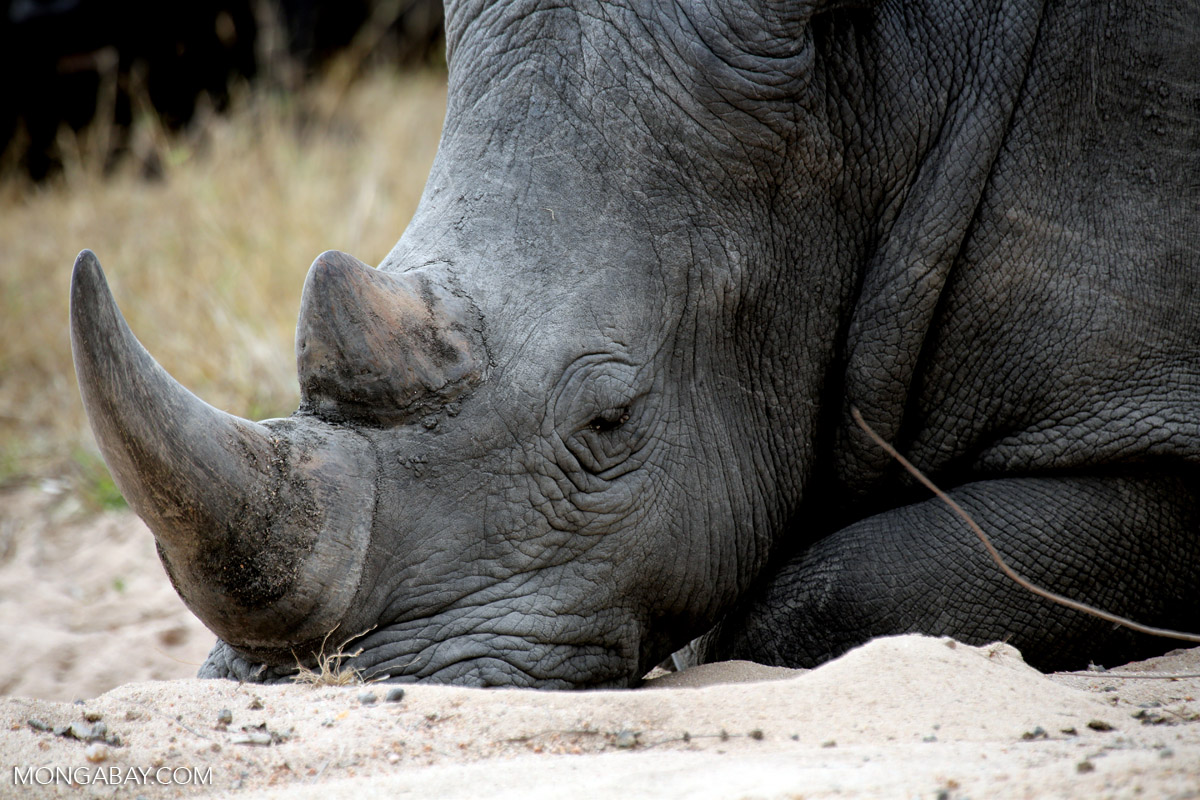- Commercial rhino breeders have welcomed the decision, arguing that an open, legal trade in rhino horns will end the poaching of rhinos and will help pay for their protection.
- However, several conservationists argue that there is no domestic market for rhino horns within South Africa and that a legal domestic trade would only worsen rhino poaching in the country.
- The Environment Affairs Minister said that all domestic trade in rhino horn would be subject to obtaining the relevant permits and to applicable provincial legislation being obtained.
A top court in South Africa just made it legal to trade in rhino horns within the country.
The South African government, in 2009, imposed a moratorium that banned domestic trade in rhino horns. But after years of legal battle between commercial rhino breeders and the government’s Department of Environmental Affairs (DEA), the constitutional court has now issued an order rejecting the government’s appeal to retain the national ban on the trade in rhino horns. The international trade in rhino horns still remains banned.
Commercial rhino breeders have welcomed the decision, arguing that an open, legal trade in rhino horns will end the poaching of rhinos and will help pay for their protection.
“This judgment is a victory for the concept of sustainable use of natural resources to the benefit of the conservation of rhino as a species, as well as to the benefit of the people protecting such species,” the Private Rhino Owners Association, one of the respondents in the case, said in a statement.

However, several conservationists argue that there is no domestic market for rhino horns within South Africa and that a legal domestic trade would only worsen rhino poaching in the country.
“Legal trade in rhino horn is not the way to stop rhino poaching,” Susie Watts of WildAid’s Africa Program, said in a statement. “All it does is stimulate demand and provide a cover for illegal trade. Legalizing trade in ivory, for example, did not saturate the market, but encouraged consumption. Elephant poaching skyrocketed as a result.”
“There is no domestic demand for rhino horn products and, as the pro-trade lobby very well knows, the reason why the moratorium was implemented in the first place was to prevent domestic trade from being used as a cover for smuggling,” Watts added.
Completely irresponsible w/o controls yet n place. Shame on SAfrican court permitting domestic trade in #rhino #horn https://t.co/zpjcIWRma4
— IntlRhinoFoundation (@RhinosIRF) April 6, 2017
South Africa, home to 70 percent of the world’s 29,500 rhinos, is currently reeling from a poaching crisis. In 2016, an estimated 1,054 rhinos were poached, while 1,175 rhinos were killed in 2015, and another 1,000 were poached in 2014. In February this year, armed poachers broke into a rhino orphanage, took the staff hostage and killed two rhinos.
The biggest markets for rhino horns — made of the same material as fingernails and hair — occur in Vietnam and China, where they’re primarily used in traditional medicine as cures for anything ranging from hangovers to cancer.
“Whilst we are studying the implications of the order handed down by the Constitutional Court, it should be noted that the court’s decision should not be construed to mean that the domestic trade in rhino horn may take place in an unregulated fashion,” Environmental Affairs Minister Edna Molewa said in a statement.
Molewa added that all domestic trade in rhino horn would be subject to “obtaining the relevant permits and to applicable provincial legislation being obtained.”
Banner image by Rhett Butler/Mongabay.
